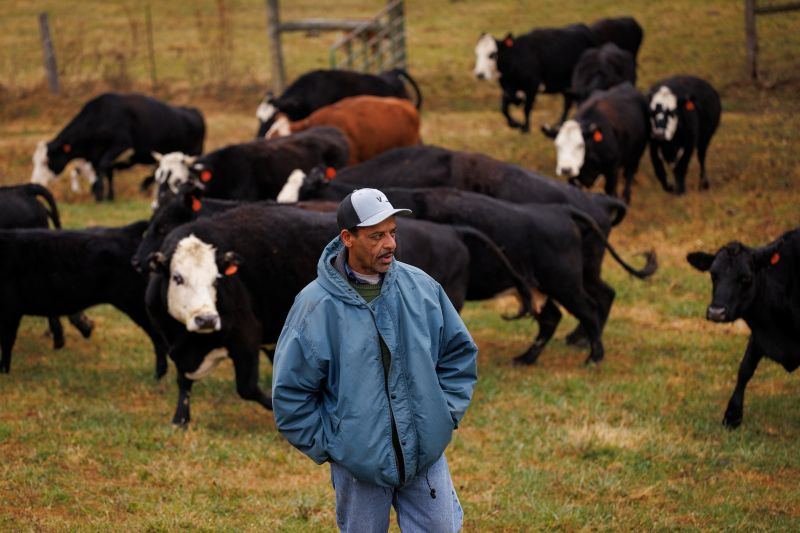
David Miller’s 130-acre cattle farm is among about 600 of Kentucky’s 76,000 agricultural operations that are Black owned.
Lincoln County cattle farmer loves what he does for a living
By Chris Aldridge
Kentucky Ag News
David Miller is in love with 50 girls, and when he calls them, they come running.
But Miller is not a ladies’ man. He’s a Kentucky cattle farmer.
“I love my girls,” Miller said of the 50 cows he cares for on his 130-acre cow-calf operation in Lincoln County. “They can be 5 miles or 5 feet from me. I can call them, and they come right up to me.
“I turn the radio on while I’m feeding them. I sing to them. I play with them. I enjoy my cows…. I pet them. I let them know I’m not going to harm them. I’ve got them so spoiled. When I go back and feed them, I can leave all the gates open, and they won’t go through them.”
Kentucky State University (KSU) named Miller its Small Farmer of the Year in 2022. During Black History Month, Miller’s cattle farm is among about 600 of Kentucky’s 76,000 agricultural operations that are Black owned.
Miller, a graduate of the Leadership Agricultural Institute at Southern University in Louisiana, has always followed research-based recommendations on his beef cattle operation. A third-generation farmer, he has owned and operated the farm for 35 years after inheriting it from his father.
“I have always been interested in farming,” Miller said. “I like working outside. I don’t like to be housed in.
“This is my livelihood. This is what I like doing. Every day is a good day … on the farm.”
But Miller warned that farming is not without its pitfalls.
“It's a daily challenge,” he told KSU. “I try not to plan because every day is different on the farm. You might say you're going to cut hay, but then … you have (farm equipment) breakdowns, you have setbacks…. It can be the weather. It can be finances.”
Miller grew up on the farm with his eight brothers and sisters. Like many Kentucky farms during the 20th century, burley tobacco was the main source of income. After his father died, Miller took his turn in the family tobacco patch, raising burley for two decades.
“Tobacco became a burden to me,” he remembered. “I’m out of it, and I’ll never go back. I’m glad it’s gone.
“Tobacco took away a lot of things that I need to do on the farm, like trying to get my hay cut on time, trying to take out the cows, trying to do the fencing.
“All I want to do is a cow-calf operation. That’s what I like doing.”
Miller touted the joys of operating a small farm over a larger one.
“It's more enjoyable, and I think it's more exciting,” he said. “Some people think small farmers aren’t important, but a small farmer is very important.
“It doesn't make any difference if you’ve got 5 acres, 10 acres, or 130 acres,” he added. “That's what feeds the world.”
Miller, 65, plans to continue to farm as long as his health will allow. During a recent check-up, his doctor complimented him for being in such good shape.
“I don’t really exercise other than walking back to check on my cows,” Miller said. “As long as God wakes me up and gives me health and strength, I’ll probably do it ’til I can’t do it no more.”

